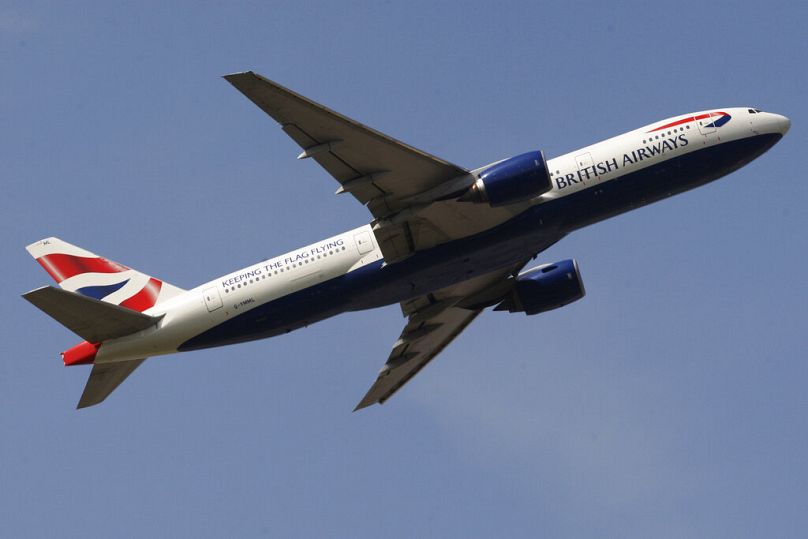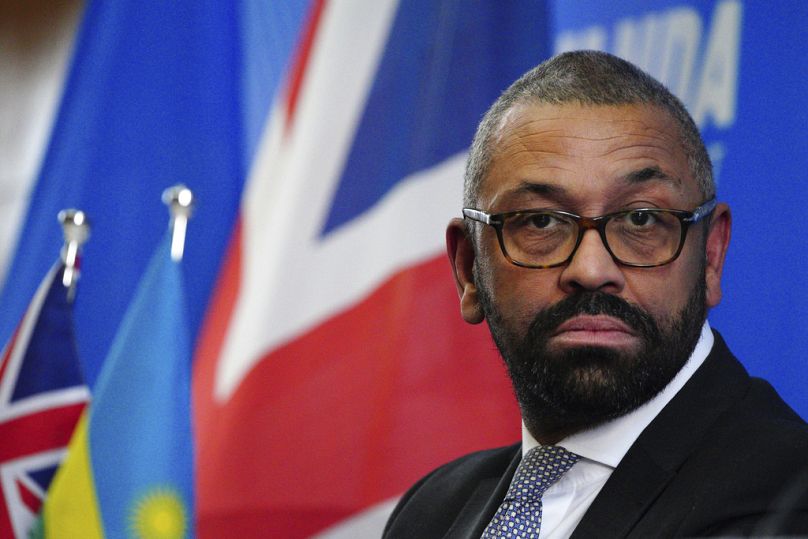"The government is willing to sacrifice the rights of British citizens who happen to fall in love across borders," one rights advocate told Euronews.
"The whole thing has made me incredibly angry," said Katharine Ward. "These are the most private things in people's lives: Who you love, where you live... Then you have a government announcement pop up that removes all of those things from your control."
 ADVERTISEMENT
ADVERTISEMENT
 ADVERTISEMENT
ADVERTISEMENT
"There's absolutely no justification for it."
Like tens of thousands of Britons up and down the country, Katharine has been affected by new family visa rules announced by the government last Monday.
From April 2024, British citizens or people already settled in the UK will need to show they earn £38,700 (€45,233) before their overseas partner can live here with them.
Only 27% of the population earn this or more, according to figures from HM Revenue and Customs.
Katharine and her partner from Jordan live in London together. They came following the COVID pandemic to be closer to Katharine's elderly parents, but now she fears their joint income will not meet the threshold. Making matters worse her job is under threat and the couple face the grim prospect of either separating or both returning to Jordan.
She thanks herself lucky they do not have kids.
"It's an enormous source of stress," she told Euronews, detailing how news of the changes had left her routinely breaking down in tears and unable to focus, with her mind "desperately" thinking about how she could make things work.
"I can't imagine what it would be like if it goes on for months of just sort of waiting to see whether these huge changes in your life are all going to happen or not."
For her partner, who she says made massive sacrifices to be with her in Britain, the new rules were a big blow, impacting how he felt in the country.
"Politicians keep sending a message that if you are here as a migrant, you're not welcome, you're a drain on society. Even though that is not true, I think it gets in."
The UK's Conservative government announced the controversial change as part of a broader package of measures aimed at bringing down net migration, which reached record highs in recent years. Ministers say it will mean families can support themselves.
With poorer families facing the prospect of being forced into exile or broken up and separated from their children and loved ones, Katharine claimed the policy flew in the face of the right-winger's alleged support of traditional values, like marriage and the family.
Observers have commented the rules are a de facto ban on Brits marrying foreign nationals, with 73% of the population unable to meet the income threshold.
The government ignored its own Migration Advisory Committee's recommendations that it should lower the minimum income requirement, while overlooking how migrants benefit the UK, according to openDemocracy.
Others point out that the new income threshold of £38,700 - up from £18,600 - means marrying a non-UK British citizen is now only possible for high earners.
"Why is it that the right to fall in love with and build a life with whoever you choose depends on how much you earn," said Josephine Whitaker-Yilmaz, Policy and Public Affairs Manager at Praxis, a UK-based group for migrant rights.
"That's fundamentally wrong."
According to the Office of National Statistics, median gross annual earnings for full-time employees in the UK were £34,963 (€40,867) in April 2023.
The change to family visas is expected by the government to reduce net migration by 10,000 a year. Family visas accounted for a net migration of 39,000 in the 12 months up to June 2023.
Claiming the policy shows a "callous disregard" for people's lives, Whitaker-Yilmaz said the policy could have "hugely detrimental" effects on the mental health of those affected, especially children separated from their parents.
At the same time, it could drive people to become undocumented migrants, if they want to remain with their family, but cannot renew their visas.
"The government is willing to sacrifice the rights of British citizens who happen to fall in love across borders on the altar of reducing net migration," she said.
Legal challenges to the changes are possible, with it possibly contravening the right to family under the 1998 Human Rights Act and European Convention on Human Rights.
Whitaker-Yilmaz said the changes will disproportionately hit women and younger people who tend to earn lower wages, worrying about what would happen to those affected in the weeks and months to come.
"These policy choices the government has made have absolutely fundamental consequences for people's lives. What we're hearing is a real sense of powerlessness in the face of government, but also real anger."












